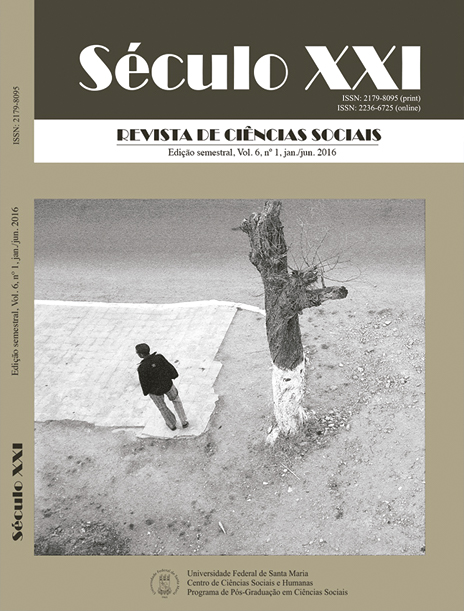An “interactional secularism”? Constitutional rule and religious expression in brazilian public university
DOI:
https://doi.org/10.5902/2236672525351Keywords:
Laity, Public University, Moral Sociology, Post-Secularization, Social Representations.Abstract
The university was an institution from middle age origin, whose moral orientation was Christian. However, since the modern rise of the nations, its moral root was changed: now the university serves to specific people and helps the generation of citizens, so became laic and public to promote the modernization process without the religions institution’s interferences. Recently, this moral roots has suffered new transformation, in concord with displacements of conceptions of modernity. However, the legislation does not follow this cultural change, so that is a juridical rule who conceives the secularization following the modern parameters. We investigated in this work how much this constitutional rule becomes an acquaintanceship rule in the public space, our case study being the Universidade Federal do Rio Grande do Sul. The quanti-qualitative study of our sample, picked among students, professors and employees, indicated that circulate social representations both modern in a strict sense and multicultural, feature of late modernity, so the secularization concept also modified and seem to suggest that a religion’s experience as an individual cultural traits happens in this space - something unthinkable at the time of the formulation of the juridical rule. Ultimately, we prepare an explicative model about the dynamic raised in the experience of this secularism, whose we called pocket watch model.Downloads
Downloads
Published
How to Cite
Issue
Section
License
Authors who publish in this journal agree with the following terms:
1. Authors keep the copyrights and allow the journal the right of first publishing, having the paper simultaneously licensed by Creative Commons Attribution License that allows the sharing of the article – copyright recognized - and first publishing in this journal.
2. The journal is allowed to require the copyrights transfer, allowing the article to be used under noncommercial purposes, including the right to send the paper to Free Access or Paid databanks, not assuming the obligation to pass on the value charged from users to the authors.
3. Authors are allowed to take additional contracts separately for nonexclusive distribution of the paper’s version published in this journal (e.g. publishing in institutional repository or as book chapter), recognizing the copyright and first publishing in this journal.







